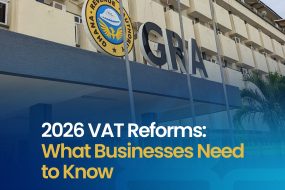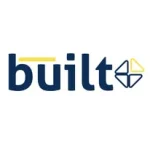
As a small business entrepreneur, you are encouraged to sign on to the compulsory Social Security contribution of 5.5% of employees’ salary and 13% of business income. Although it is a retirement plan, it is also a smart way to reduce taxes for both your workers and your business while motivating your workers too. Retirement plans reduce an individual’s taxable income because they are pre-tax deductions.
Types of retirement plans you can open include tier 1, tier 2 and tier 3 plans. If you decide to set up a retirement plan, employees cannot decide to forfeit the contribution. And, you can also decide to contribute to an employee’s account with many of the plans. Your contributions are tax-deductible, which reduces your business’s income taxes.
You can also set up a retirement plan for yourself. If you are self-employed (e.g., sole proprietor or partner), you are entitled to your business’s income. Opening a retirement plan acts as a small business tax shelter and reduces your taxable income.
For more information on using retirement plans to lower your taxable income, check out Section 94 of the Income tax Act 2015 (Act 896)
Offer fringe benefits
All businesses are expected to pay taxes on all benefits enjoyed by their employees from being employed. These can be car maintenance allowance, risk allowance, living allowance, entertainment, rent and travel allowance amongst others. These allowances are added to their basic salary when determining their Assesseable income from employment. And, you need to also include any contributions being made on their behalf by the employer towards their retirement. It may be the compulsory 13% contribution and any other contribution to a provident fund however, these contributions are allowable deductions when determining the final chargeable income. But, there are certain benefits that are exempt from tax.
Fringe benefits are benefits you give employees in addition to regular wages and salaries. And, 80% of employees agree that they would choose benefits over a pay raise. Offering fringe benefits can only be an important part of an employee’s compensation package, but it can also increase their payroll tax liability.
Some fringe benefits, like dental, medical or health insurance expense of an individual where the benefit is available to all full-time employees on equal terms, payments made to employees on a non-discriminatory basis, redundancy pay, provision of accommodation on the site such mining, timber, building, construction, petroleum and farming business, re-imbursement of an expense incurred on behalf of the employer that serves a proper business purpose are all exempt from income tax. That means you can decrease your tax liabilities if you are aware.
To learn more, click to download the Income Tax Act 2015, (Act 896)
Below are more details of the Pension structure of Ghana and the need to contribute towards your future as a Small business manager.
National Pensions Act, 2008 (Act 766) provides for the establishment of a contributory three-tier pension scheme which consists of:
· A mandatory basic national social security scheme (First Tier);
· A mandatory fully funded and privately managed occupational pension scheme (Second Tier); and
· A voluntary fully funded and privately managed provident fund and personal pension scheme (Third Tier)
Mandatory First and Second Tier Contributions
By law, it is mandatory for all employers in Ghana to contribute to social security on behalf of all their employees.
The total contribution is 18.5% which is made up of 5.5% from the employee and 13% from the employer. Both contributions are based on the employee’s basic salary.
The payment to the social security scheme is then split into 13.5% which goes into the Social Security and National Insurance Trust (SSNIT) — Tier 1 scheme and the remaining 5% goes to the Tier 2 scheme which is privately managed.
A return is required to be submitted (together with payment) on or before the 14th of every month in respect of the previous month’s contributions.
The Act mandates contributions by and for all employees (including expatriates). The Regulators in publications and per the gazette of the National Pensions (Amendment) Act, 2014 (Act 883), have spelt out new modalities compelling expatriates to be enrolled on the scheme. Expatriates are guaranteed recovery of their contributions once they demonstrate that they are emigrating permanently from Ghana whether the minimum pension contribution of 15 years is met or not.
Exemption from participation/contributions is available to expatriates who are on a short-term contract (not more than 36 months) and can prove that they are making similar contributions in their home countries.
Voluntary Third Tier Contributions (Provident Fund)
This is a voluntary scheme that both the employer and employees can contribute into. However, such a scheme is required to be registered under the National Pensions Regulatory Authority approved scheme in order to gain tax deductibility. Where this requirement is met, both the employer and the employee may benefit from a tax deduction up to a maximum contribution of 16.5% by both the employer and/or the employee. The above tax benefit can fully be utilized where there are no withdrawals until after the tenth (10th) anniversary of the contribution.
For further enquiries on how to account for employment benefits of your small business, contact me via [email protected] or call our hotline 0303974832.












No Comments